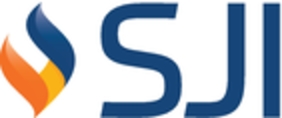Increasing interest rates would negatively impact the net income of SJI and SJG.
Several of SJI’s subsidiaries, including SJG, are capital intensive, resulting in the incurrence of significant amounts of debt financing. Some of the long-term debt of SJI and its subsidiaries is issued at fixed rates or has utilized interest rate swaps to mitigate changes in variable rates. However, long-term debt of SJI and SJG at variable rates, along with all variable rate short-term borrowings, are exposed to the impact of rising interest rates.
The inability to obtain capital, particularly short-term capital from commercial banks, could negatively impact the daily operations and financial performance of SJI and SJG.
SJI and SJG use short-term borrowings under committed credit facilities provided by commercial banks to supplement cash provided by operations, to support working capital needs, and to finance capital expenditures, as incurred. SJG also relies upon short-term borrowings issued under a commercial paper program supported by a committed bank credit facility to support working capital needs, and to finance capital expenditures, as incurred. If the customary sources of short-term capital were no longer available due to market conditions, SJI and its subsidiaries may not be able to meet their working capital and capital expenditure requirements and borrowing costs could increase.
A downgrade in either SJI’s or SJG’s credit ratings could negatively affect our ability to access adequate and cost-effective capital.
Our ability to obtain adequate and cost-effective capital depends to a significant degree on our credit ratings, which are greatly influenced by our financial condition and results of operations. If the rating agencies downgrade either SJI’s or SJG’s credit ratings, particularly below investment grade, our borrowing costs would increase. In addition, we would likely be required to pay higher interest rates in future financings and potential funding sources would likely decrease. To the extent that a decline in SJG’s credit rating has a negative effect on SJI, SJI could be required to provide additional support to certain counterparties.
Hedging activities of the Company designed to protect against commodity price or interest rate risk may cause fluctuations in reported financial results and SJI’s stock price could be adversely affected as a result.
Although SJI enters into various contracts to hedge the value of energy assets, liabilities, firm commitments or forecasted transactions, the timing of the recognition of gains or losses on these economic hedges in accordance with accounting principles generally accepted in the United States of America does not always match up with the gains or losses on the items being hedged. The difference in accounting can result in volatility in reported results, even though the expected profit margin is essentially unchanged from the dates the transactions were consummated.
The inability to obtain natural gas or electricity from suppliers would negatively impact the financial performance of SJI and SJG.
Several of SJI’s subsidiaries, including SJG, have businesses based upon the ability to deliver natural gas or electricity to customers. Disruption in the production or transportation to SJI or SJG from its suppliers could prevent SJI or SJG from completing sales to its customers.
Transporting and storing natural gas involves numerous risks that may result in accidents and other operating risks and costs.
SJI’s and SJG’s gas distribution activities involve a variety of inherent hazards and operating risks, such as leaks, accidents, mechanical problems, natural disasters or terrorist activities which could cause substantial financial losses. In addition, these risks could result in loss of human life, significant damage to property, environmental pollution and impairment of operations, which in turn could lead to substantial losses. In accordance with customary industry practice, SJI and SJG maintain insurance against some, but not all, of these risks and losses. The occurrence of any of these events, even if fully covered by insurance, could adversely affect SJI’s or SJG’s financial position, results of operations and cash flows.
Adverse results in legal proceedings could be detrimental to the financial condition of SJI or SJG.
The outcomes of legal proceedings can be unpredictable and can result in adverse judgments.
